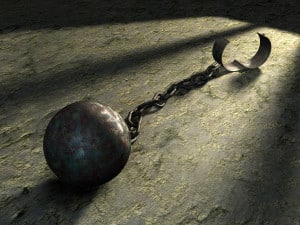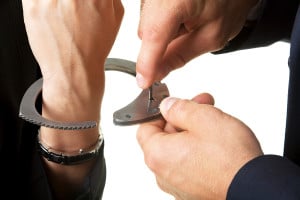Vancouver Criminal Lawyer – Butler & Company – 604-318-3838

Call our Vancouver criminal lawyer if you have been charged with a criminal offence such as impaired driving, criminal negligence causing death, assault, sexual assault, shoplifting, employee theft, fraud, possession of a narcotic or trafficking and need some helpful advice about legal defences to the charges and your possible options then call Jamie Butler, of Butler & Company, at 604-318-3838 (24 hours / 7 days a week).
For immediate and helpful information about the specific type of charges that you may be facing CLICK on the menu bars to the RIGHT.
For answers to some commonly asked questions regarding Criminal charges, driving charges and bail simply CLICK ON the question below.
Common concerns of clients charged with a criminal offence
- Can I get a plea deal?
- How do I avoid a criminal record?
- How do I avoid a driving prohibition?
- Can I get my bail conditions changed?
- What sentence will I get?
- Isn’t it better for me if I just plead guilty?
- Do I actually need a lawyer?
- What is the cost for a lawyer? Do you take payment plans and credit cards?
- My criminal charges are in northern BC, the interior of BC, the Kootenays or Vancouver Island so won’t it cost me more to have a Vancouver-based lawyer deal with them?
- Can you walk me through the Court Process from first appearance to final resolution? What can I expect to happen at each of the following appearance dates: First Court Appearance, Arraignment Hearing, Trial Confirmation Hearing, Trial or Sentencing?
Can I get a plea deal and/or reduction of charges?

MOST OFTEN YES”.
Experienced lawyer Jamie Butler has personally dealt with thousands of criminal charges from beginning to end. Provided your matter does NOT proceed all the way to trial (and at Butler & Company over 90% of our cases are solved without a trial) there is ALWAYS room to negotiate a plea or a reduction in charges. It must be remembered once you have been charged with an offence, be it an assault (domestic assault or sexual assault) or a driving offence (like impaired driving or failure to proved a breath sample) those charges are not necessarily “set in stone”. It is VERY VERY COMMON for your lawyer to enter negotiations with the Crown Counsel with conduct of your criminal file to negotiate for you regarding your charges. Crown Counsel has the authority and mandate to negotiate the precise nature of the charges that you may plead guilty to AND the sentence that you will receive. Arranging a plea deal (especially where the allegations are serious or the possible repercussion of a conviction are enormous) is one of the most essential functions of your criminal lawyer. In negotiating a plea deal the Crown Counsel have to act in accordance with their set policies, procedures and guidelines (like the Violence Against Women in Relationship Policy : CLICK HERE FOR VIOLENCE AGAINST WOMEN IN RELTIONSHIPS POLICY). Also any negotiated plea (on the appropriate sentence, NOT the appropriateness of the ultimate charge) has to be ultimately approved by the Court (in that the Court has to ultimately accept or reject any plea deal that has been negotiated between the parties lawyers). Therefore is VERY IMPORTANT that you hire a lawyer to negotiate your plea who: (a) knows his/her way around the Crown Counsel Policy Manual and the loopholes, gaps or shortcomings in same; and (b) knows the parameters and past habits of the Judges and Courts involved in similar cases; and (c) is well respected by the Crown and the Courts; ALL of these factors are important in ensuring that you get the BEST POSSIBLE DEAL and also in obtaining for you the lowest possible sentence and the sentence that best fits your circumstances and needs.
Some of the common plea deals that are worked out involve the defence lawyers arranging a substituted measure (perhaps a non-criminal peace bond or other alternative measures) for a person charges with spousal assault. Or the defence lawyer arranging a Motor Vehicle Act charge (for instance a charge for “undue care and attention”) in place of a Criminal Code charge (say, impaired driving).
Our experienced criminal lawyer:
Jamie Butler is an experienced Vancouver based criminal lawyer who has acted as counsel in all types of cases where the charges laid have been as minor as causing a disturbance, possession of a small amount of marijuana or those involving a pushing and shoving domestic assault, to more substantial charges like those involving impaired driving causing death or serious sexual assault and even murder-related charges. He was a very effective former prosecutor who now uses all of his former prosecuting experiences and contacts to work for YOUR BENEFIT in either negotiating the best possible plea deal for you or, in the event your matter proceeds to trial, in preparing the best possible likely defence for you.
Jamie Butler has personally conducted well over 2000 trials throughout the Province of British Columbia. He regularly travel to some of the most remote circuit courts in the Province of British Columbia to ensure that fairness and justice gets done for his client. That means he knows the inside and outside of any of the courtrooms in the Province. He has had plenty of success INSIDE the courthouse for his clients and that translates into an advantage for you because it means that any of the Crown Counsel involved in your criminal or driving offence case will know that it would be best to deal with Jamie Butler by offering YOU the best and fairest possible resolution OUTSIDE the courtroom by way of plea deal. It is often said that the best defence is a great offence! Jamie Butler is that great offence. He will work hard for you to obtain the best result outside of court but if push comes to shove he will be there to present your case in the best possible light inside a courtroom to a judge or jury.
Remember this: Do not settle for less than the best criminal lawyer in Vancouver as there is no second best in the courtroom.
Call us at 604-318-3838 (24 hours and 7 days a week) and we can arrange a FREE LEGAL CONSULTATION regarding the possibility of negotiating a plea to your criminal and/or driving charges. Alternatively we also offer a FREE LEGAL EVALUATION of your criminal case by your sending us a brief written description of your case by CLICKING HERE.
How do I avoid a criminal record for my offence?

“OVER 95 % OF OUR CLIENTS DO NOT GET A CRIMINAL RECORD”.
Anyone charges with a criminal offence, especially the first time, is concerned about both the stigma and repercussions that a “criminal record” may pose for them. Sometimes the avoidance of a criminal record is the most important thing to a client. In such cases there may be immigration concerns, employment concerns, or concerns over international travel that fuel the client’s concern. Alternatively it might just be the avoidance of being labeled a “CRIMINAL” or having your fingerprints remain on file with the police that may fuel the client’s concern. Depending upon the nature of the charges involved and the good past conduct of an offender the avoidance of a criminal record can often be negotiated and achieved as part of a negotiated plea deal. To understand how plea deals work CLICK HERE.
Our Vancouver criminal lawyer has been personally involved as counsel in lots of cases where the offender did not receive any criminal record. At Butler & Company we are proud to say that we have a overwhelming experience in obtaining results that do not involve our client’s ever receiving a criminal conviction. It is a fact that over 85% of our clients facing criminal charges come to our office without already having a criminal record. It is also a fact that over 95 % of our client’s eventually leave our office without ever receiving any criminal record as a result of the offences for which they hired us. We are often successful in avoiding criminal records by negotiating or ultimately fighting for the following:
(a) a stay of proceedings (ie. usually by convincing the Crown that the criminal charges are unnecessary, not in the public interest to prosecute or that they lack evidence to substantiate a conviction);
(b) a judicial stay of proceedings (often based upon the legal or procedural technicalities of a case);
(c) the imposition of “alternative measures” or “diversion” of charges directly to probation without criminal convictions or trials (usually available for first time shoplifting offences or some allegations involving domestic violence);
(d) the imposition of non-criminal remedies (ie. the institution of a “peace bond” in lieu of criminal assault or threatening charges; or most commonly our convincing the Crown that Motor Vehicle Act charges like driving with undue care and attention charges should be substituted for criminal impaired driving charges);
(e) the imposition of other largely substitutional charges or regulatory charges in lieu of criminal charges;
(f) the resolution of criminal charges by sentences that involve joint submissions by the Crown and Defence for the imposition of a sentence involving a “absolute discharge” or “conditional discharge” .
There are as many ways available to avoid a criminal conviction. The possibilities are endless but do involve a seasoned criminal lawyer like Jamie Butler putting his mind to work for you to determine the best possible manner of proceedings with your unique charges and personal circumstances.
Call us at 604-318-3838 (24 hours and 7 days a week) and we can arrange a FREE LEGAL CONSULTATION regarding the possibility of negotiating a plea to your criminal and/or driving charges. Alternatively we also offer a FREE LEGAL EVALUATION of your criminal case by your sending us a brief written description of your case by CLICKING HERE .
How do I avoid a driving prohibition for my driving offence?

“OFTEN TIMES WE CAN AND DO ARRANGE THIS”.
Driving has become so ingrained in our day to day existence as to be considered by most over the age of 16 years to be not a PRIVILEGE to drive but rather a “RIGHT” to drive. The fact is because of the ever increasing urban populations, increasing urban sprawl, the expectations of employers both in the hours of work and demands for the use of company vehicles or ability to drive as part of the job requirement, the inaccessibility and unavailability of alternative modes of transit, the longer distances we must travel between our homes and workplaces, that altogether owning a car and one having the unlimited and unrestricted access to use one to travel is almost a “must” to anyone expecting to pay their rent or mortgage and/or provide for themselves or their families.
Unfortunately, even what one may feel are very minor personal indiscretions can lead to drastic effects. This is the case where impaired driving charges, driving over 80 milligrams charges, refusal to provide a breath sample charges, dangerous driving charges, speed racing charges or other driving infractions like driving while prohibited charges are instituted against a person.
Owing to the carnage left in the wake of motor vehicle accidents involving impaired drivers and those who choose to drive faster or more dangerously than permitted, Parliament (those in power in Ottawa) and the Legislature (those in power in the Province of B.C.) have developed laws that largely take away from the Courts their inherent powers to fashion appropriate sentences when charges such as those mentioned above have arisen. These laws instead prescribe MINIMUM SENTENCES WHICH INVOLVE DRIVING PROHIBITIONS so that the Court’s hand are tied when they pronounce sentence on the offenders of these types of offences. For instance, currently anyone who pleads guilty or is found guilty of amongst other offences: impaired driving, driving over 80 milligrams or dangerous driving, is immediately faced with AT THE VERY LEAST A CRIMINAL RECORD AND A ONE YEAR ACROSS CANADA DRIVING PROHIBITION. (I should advise that those convicted of these charges also face other repercussions and to find out more you should CLICK HERE.
In order to avoid a driving prohibition for these types of offences a lawyer must be able to either WIN their cases for the client at trial or alternatively (and preferably in most instances) convince the Crown Counsel to proceed with substitutional charges which do not carry minimum sentences (ie. mandatory driving prohibitions) in the place of those charges that do carry minimum sentences that involve mandatory driving prohibitions. This is no easy task and often involves showing the Crown Counsel involved in the prosecution of your case the weaknesses of their case, the strengths of possible defences for the accused, showing the Crown that special or extra-ordinary circumstance exist for your client that may lead to the exercise of discretion based upon Crown policy and/or in generally advocating for the client. Of course, knowing when to “show your cards” to the Crown and knowing when to “hold them” is an extremely difficult task involving a great degree of tact that must be undertaken with a great deal of caution. The results of this exercise, however, can be extremely beneficial in driving related offences. Our Vancouver impaired driving lawyer, Jamie Butler. has been extremely successful in obtaining results for clients who are looking to avoid driving prohibitions when faced with driving offences with minimum sentences.
Jamie Butler has personally conducted well over 2000 trials throughout the Province of British Columbia. He regularly travels to some of the most remote circuit courts in the Province of British Columbia to ensure that fairness and justice gets done for his client. That means he knows the inside and outside of any of the courtrooms in the Province. He has had plenty of success INSIDE the courthouse for his clients and that translates into an advantage for you because it means that any of the Crown Counsel involved in your criminal or driving offence case will know that it would be best to deal with Jamie Butler by offering YOU the best and fairest possible resolution OUTSIDE the courtroom by way of plea deal.
Call us at 604-318-3838 (24 hours and 7 days a week) and we can arrange a FREE LEGAL CONSULTATION regarding the possibility of negotiating a plea to your criminal and/or driving charges. Alternatively we also offer a FREE LEGAL EVALUATION of your criminal case by your sending us a brief written description of your case by CLICKING HERE
Can I get my bail conditions changed?
 “OFTEN YES”.
“OFTEN YES”.
When anyone is taken into custody by the police and thereafter charged with even a minor offence the Crown will often request “bail conditions” that will sometimes be agreed to by an unsuspecting accused who in the heat of the situation fears he will be subject to further incarceration if he/she does not agree to the “bail conditions”. After being released from custody the accused sometimes finds that the terms of his release are onerous or downright invasive. Often an accused feels that their life is under a microscope after being released or feels powerless and left to the devices of the state. The most common type of situation arises in domestic assault situations where a husband is charged with an assault against his wife or child and after spending a sobering night in jail behind bars he is only so happy to agree to any bail conditions suggested simply to secure his release. Those terms usually involve “No contact orders” so that the accused is restricted under threat of further criminal charges (or bail revocation) from contacting his spouse in any fashion (physical contact, telephone contact, internet contact). Usually, in those circumstances the accused will also be placed on what has been termed by lawyers a “no go” condition which will restrict him from even attending at his own residence (if the spouse or girlfriend continues to live there). These such terms can be extremely stressful and onerous on an accused especially in circumstances: (a) when the accused did not commit the offence alleged or in the manner alleged, (b) when the occurrence was a “one off” or committed in situations where both parties had consumed too much alcohol, (c) where both parties wish to remain or continue their relationship as husband and wife or boyfriend and girlfriend, (d) where the offending party cannot afford to live elsewhere either because he operates a business from his residence or because he cannot afford to both take care of his dependent spouse and/or children (who remain in the family residence) , and rent a new residence while the charges remain outstanding.
The Crown often relies upon the above reality to accept early guilty pleas to criminal charges of domestic assault. However, there are other options. Firstly. the criminal law in Canada recognizes your rights to have a bail review in Supreme Court (or higher courts) to rectify the situation. A less costly manner of dealing with the onerous “no contact” or “no go” conditions is to use the services of your criminal lawyer at Butler & Company to secure a reasonable plea deal CLICK HERE or use our services to convince the Crown to exercise its discretion to conduct a “bail review” at Provincial Court. Sometime the Crown will listen to reason. They can be convinced that parties need to see each other (after a reasonable “cooling off period”) in order to reconcile or that a “no go” provision is no longer necessary owing to the fact that the spouse/girlfriend no longer resides at the residence, or for other reasonable excuse. YOU DON’T HAVE TO COUCH-SURF AND WAIT FOR THE RESOLUTION OF YOUR TRIAL! Bail reviews are often conducted in open court after your lawyer convinces the Crown of the need for same. The Courts are busy places but there is always time for them to conduct a simple hearing to ensure justice and fairness results for all parties involved in the process, especially the accused.
Call us at 604-318-3838 (24 hours and 7 days a week) and we can arrange a FREE LEGAL CONSULTATION regarding the possibility of negotiating a plea to your criminal and/or driving charges or negotiating a reduction in bail. Alternatively we also offer a FREE LEGAL EVALUATION of your criminal case by your sending us a brief written description of your case by CLICKING HERE.
What sentence will I get? How do I avoid incarceration?

“WE CAN HELP REDUCE YOUR SENTENCE AND AVOID JAIL”
Lawyers are not scientists or magicians. Thus the outcome of a case involving criminal charges or driving related charges (like impaired driving or driving while prohibited) cannot be predicted with scientific or magical precision. However the effects of outstanding charges can be minimized by effective use of plea bargaining CLICK HERE. There are some cases that, despite anything that your lawyer can do, will result in serious consequences such as incarceration. Incarceration is only a last result for the courts and by and large the courts will not incarcerate an accused unless either all other options have been explores or the minimum sentence requirements of the Criminal Code call for same. At Butler & Company we do whatever we can to get the lowest possible sentence for our client in the event of a guilty plea or finding of guilt. Things we do to help include:
(a) We work with the Crown to determine and restrict the actual FACTS of the offence that will be alleged before the court at your sentencing hearing in order to reduce the severity of the allegations, especially where some facts that might otherwise been alleged were aggravating and would in the normal course lead the Court to impose heftier sentences;
(b) Work with you and those known to you to get letters of reference that show the offence is out of character for you;
(c) We often work with experts, like forensic psychologists and psychiatrists to prepare written reports addressing areas of concern so that they can be presented to the court in your sentencing hearing;
(d) We can and do secure “joint sentence” recommendations from the Crown Counsel involved in your sentencing hearing to minimize the risk of any incarceration;
(e) We help secure adjournments to sentencing hearings for periods of time to either help you deal with the anticipation of your expected sentence (ie. any limited driving prohibition that may result) or to secure Pre- sentence reports from any community supervision officers or probation officer that may be helpful to your ultimate sentence;
(f) We will prepare you to help you deliver a meaningful apology either directly in court or in writing when appropriate;
(g) We work hard to investigate and then produce for the sentencing Court relevant case law booklets that reflect the lowest range of sentencing available to the Court;
(h) We will appeal your sentence and attempt to secure your release from custody or stay any other condition of sentence (ie. any driving prohibition imposed by the Court. etc.) pending the determination of your appeal.
We work every conceivable angle possible to avoid the harshness of any sentence. Though we cannot promise to avoid incarceration altogether we ensure that all our clients avoid jail if possible.
In the 20 years that Jamie Butler has been acting as a criminal lawyer less than 1 % of his clients have ended up in jail as a result of their alleged crimes. Most of his clients have not been convicted or have had negotiated pleas that do not involve any incarceration. VERY VERY FEW have seen the inside of a jailhouse after hiring him.
Remember this: Do not settle for less than the best criminal lawyer in Vancouver as there is no second best in the courtroom.
Call us at 604-318-3838 (24 hours and 7 days a week) and we can arrange a FREE LEGAL CONSULTATION regarding the possibility of negotiating a plea to your criminal and/or driving charges. Alternatively we also offer a FREE LEGAL EVALUATION of your criminal case by your sending us a brief written description of your case by CLICKING HERE.
Isn’t it better for me if I just plead guilty?
 “OFTEN TIMES NO – AND DEFINITELY DON’T PLEAD GUILTY WITHOUT GETTING QUALIFIED LEGAL ADVICE!”
“OFTEN TIMES NO – AND DEFINITELY DON’T PLEAD GUILTY WITHOUT GETTING QUALIFIED LEGAL ADVICE!”
The provisions of the Criminal Code outline the principles that the Court uses for determining the appropriate sentence for a crime.One of the principles of sentencing that is considered a “mitigating factor” is the existence of “remorse”. Remorse is expressed at sentencing by an accused’s acceptance guilt for his crime in his entering a guilty plea.It has long been recognized by the Courts that an acceptance of”guilt” can go a long way to reduce a sentence (or in later dealing with parole if necessary). However sometimes the Crown Counsel “over-charge” a matter by adding counts that lack in substance or charge matters that
are more serious with a hope to actually secure convictions on less serious charges. This is often the cases where a person is accused of domestic violence or even sexual assault. In appropriate cases we do not disagree that it may be best to enter an early guilty plea (ie. to avoid the possible further investigation of other offences or to avoid the cost of criminal litigation in an lengthy trial), however an early guilty plea will NOT always serve your interests.
Sometimes it is necessary and best for your case to put the Crown through the motions of actually going to trial so that the Crown can actually assess its case and interview its witnesses so that the Crown can actually realize the flaws in its prosecution and offer a better deal or even drop charges. This is often the case in domestic assault cases and sexual assault cases where only after interviewing the witnesses closer to trial does the Crown realize that: (a) its main complainant has changed their mind and no longer has any interest in the charges proceedings; (b) its main witnesses to the offence are actually unsavoury or not credible.
Just because you are charged with an offence does not mean that the Crown will be able to prove it beyond a reasonable doubt. Some offences are easier to prove than others. Some offences will carry increased penalties when others will result in no criminal record at all. The unique facts of each case must be analyzed, the quality of the evidence that will be presented must be considered, and the recent and up to date law relating to the offence and sentencing must be applied. It is best to therefore have a qualified and experienced criminal lawyer in your camp when your are left to determine when, where and under which circumstances to plead guilty.
WHATEVER YOU DO OUR ADVICE IS TO NOT PLEAD GUILTY WITHOUT AT LEAST EXPLORING OPTIONS WITH A QUALIFIED CRIMINAL LAWYER LIKE JAMIE BUTLER OF BUTLER & COMPANY.
Call us at 604-318-3838 (24 hours and 7 days a week) and we can arrange a FREE LEGAL CONSULTATION regarding the possibility of negotiating a plea to your criminal and/or driving charges. Alternatively we also offer a FREE LEGAL EVALUATION of your criminal case by your sending us a brief written description of your case by CLICKING HERE.
Do I actually need a lawyer?Do I need a lawyer for my first appearance in court?

“NO. BUT IT IS BEST TO HAVE ONE”.
Except in very unique situations (so unique that we feel the need not mention them here) the law does not actually require you to hire a lawyer to defend criminal charges or other charges. You can therefore choose to defend yourself and be forced to hire a lawyer to defend you.
Ask yourself: would you perform your own root canal if your teeth were in pain? Would you perform surgery on your spine if you broke your back? If the answer is “NO” then the same should apply for hiring a lawyer when faced with serious criminal charges. There is far too much at stake. Far too much to lose. Far too many variables to consider in each case. Far too much that would go wrong. Cases that are self-represented on average eat up way more court time than those with counsel. Far too much time is wasted on inconsequential matters. Cases which ought to be resolved or could or should have been resolved end up in trial with self-represented accused simply because the Crown Counsel are, rightly or wrongly, limited by legal rules that restrict their discussing plea deals with self-represented person.
On the positive side if you end up defending yourself the Courts will often be patient with you and will often guide you with respect some of the strict technical, legal or procedural rules as the case goes along. So, most of the time, you should end up having quite a fair hearing. However the results achievable by lay-lawyers are at best minimal and there is just no substitute for good legal counsel in a criminal case. Very few non-lawyers can be adequate advocates. Even lawyers hire lawyers to defend them in cases involving alleged improprieties. This should tell you something that lawyers and judges alike know only too well: “He who defends himself has a fool as a client”!
For the first court appearance?
In all cases after a person is charged with an offence that person must attend at court for what is called a First Appearance. (For more detail in what to expect at your first appearance and subsequent appearances CLICK HERE:. For first appearance purpose it is not entirely necessary to appear in court with a lawyer beside you. More than 85 % of accused appear there without a lawyer as the first appearance is largely a “roll call” type of appearance where the accused will be provided with his police reports (which lawyers call “particulars”) and be thereafter adjourned for him to provide those particulars to a lawyer or to be given time to consider them. Though many people choose to have lawyers attend with them at the first appearance there is often no real benefits to be gained from same.
Therefore, at your first court appearance or in cases involving very minor infractions with minimal risk where sentences are concerned a lay-person can normally handle the situation. However in technical-legal cases or cases where the charges are serious enough so that minimum sentences (involving possible jail time or driving prohibitions can result) one would be best to hire a lawyer who knows the ropes.
What is the cost for a lawyer? Payment plans? Payment by credit card?

“WE MAKE THINGS AFFORDABLE. MONTHLY PAYMENT PLANS AND CREDIT CARDS ARE OKAY”.
At Butler & Company we pride ourselves in providing exceptional legal services for a “fair and reasonable’ cost. If you want the cheapest lawyer available don’t look here. If you want to pay through the nose for legal services again look elsewhere. If you want to pay a reasonable fee for quality legal service then read on.
Our fees for criminal legal work can be arranged on a “all inclusive quote” or alternatively legal services on a time spent basis (ie. legal service by the hour). That said most clients choose to hire our Vancouver Criminal lawyer at Butler & Company on an all inclusive basis. That quote will cover off all court appearances from first appearance to the trial or sentencing; it covers all letters and communications with you, the Crown, experts; it covers all communications with parties including witness preparation, and trial preparation; it covers the drafting of legal applications and arguments and the time spent researching relevant case law; it also covers all costs associated with the presenting your case in a brief to the Crown as part of the plea bargaining process and/or the costs associated with a trial if the matter proceeds that way. If you choose to proceed with our quote based fee we will definitely advise you UP FRONT as to any of the extra or optional costs that may become necessary in defending your matter (ie. usually the costs associated with hiring experts for expert testimonial evidence, expert affidavit evidence or for the preparation of expert reports, etc.). This way you will be very well informed of all of the basic costs as well as the potential costs associated with experts. At Butler & Company when we charge on a quote basis we will NOT nickel and dime you for everyday disbursements like photocopying, mail, couriers or other administrative costs as those costs are largely included in our fee quote. Therefore at Butler & Company we are able to give you firm quotes for the work that will be done on your matter without exception. We guaranty that there will be absolutely NO HIDDEN FEES associated with our legal services.
Payment plans available?
“YES”.
Although our quotes are firm and prices reasonable we understand that sometimes clients have other bills to pay and that the prospect of paying up front legal fees can be daunting. Therefore we offer alternative manners of payments such as: monthly payment plans, payment by credit card or even deferred payment plans. In cases where persons have, for instance, legitimate other legal claims for personal injury accidents etc. sometimes we will defer legal fees on criminal matters until the resolution of your personal injury matter.
Payment by credit card “YES”. We accept payment by credit card but we do not accept ALL type of credit cards. Please therefore call our office for details on this method of payment.
My charges are in northern BC, the interior of BC, the Kootenays or Vancouver Island won’t it cost me more to have a Vancouver-based lawyer deal with them?

“OFTEN TIMES … NO!”.
In British Columbia an accused person will normally be tried in the jurisdiction in which the charges were committed. There are several regular or circuit courts throughout the Province that hear criminal matters. We deal with charges all over the Province and therefore have to attend court at courthouses all over the Province.
Sometimes cases will actually involve our lawyer’s presence in court (ie. for a trial on the merits). On other occasions (for many court appearances, some sentencing hearings and even some continuations of trials) when we deem it is appropriate to do so (ie. where absolutely no harm will be done to your case) we can and do seek judicial approval for our criminal lawyer to appear in court in your jurisdiction by telephone or by other electronic means (ie. video). Still on other occasions when the presence of a lawyer for a simple appearance is required we arrange to have competent agent legal counsel present in court on our behalf at completely no cost to you (the latter might occur at a simple 2 minute long scheduled court appearance like a Trial Confirmation Hearing).
At Butler & Company any trial or negotiated plea deal with be completed by our competent criminal lawyer, Jamie Butler. The legal fees we charge for criminal offences and driving offences are reasonable and we make an effort NOT incur unnecessary expenses for travel where possible. Therefore the cost of our services can be affordable for everyone, no matter where your matter will be heard. Also though some costs related to travel will be an extra expenses incurred by us in defending you we attempt to offer reduced legal fees to our out of town clients in order to adjust the extra cost associated with long-distance travel. We never charge our clients for fees associated with our competent agent’s lawyers appearances on your matters. This way our Vancouver-based criminal lawyer can serve you in your jurisdiction for a reasonable fee without much, if any, additional expense to you.
Can you walk me through the Court Process from first appearance to final resolution? What can I expect to happen at each of the different appearance dates?
 There are several appearance necessary including:
There are several appearance necessary including:
The Court process in general:
If you are charged with any criminal offences (like assault, theft, fraud, etc.) or a criminal driving offence (like impaired driving, driving over 80 milligrams, refusal to provide a breath sample, dangerous driving or hit and run) then normally you will be tried in BC Provincial Court. Sometimes however it will become apparent that the charges are more serious than simple assault, or impaired driving simpliciter. The degree of seriousness and consequences relating to the charges is always considered by the charging authority and often involves an assessment of the degree of the harm caused by the act committed. In B.C. the office the Attorney General through their agents called “Crown Counsel” is the party who ultimately decides how serious the charges are. Where the charges are of sufficient seriousness or where the Crown feels that circumstances warrant (like for instance with a constant and/or repeat criminal or impaired driving offender) then the charges may be proceeded with by a trial in BC Supreme Court rather that the Provincial Court.
The decision on whether the charges are serious enough is left to the Crown and is not subject to review by the accused. If the Crown indicates that the charges are serious enough then the Crown will proceed by what is called an “Indictment” instead of in the regular course (or by what is called by “Summary Conviction”). If the Crown elects to proceed by Indictment then the accused can choose (or elect) to have his trial heard by a Judge or by both a Judge and Jury in Supreme Court. Most criminal case or criminal driving offence cases (such as simple impaired driving cases) are dealt with and finally resolved at the Provincial Court rather than the Supreme Court level.
The criminal trial process entails many appearances both by the accused and/or his counsel at the Provincial Court level. What follows is a short summary of the nature of these appearances.
A. The First Appearance:
When you first had dealings with the police, if you are expected to be the subject of criminal charges then you were most likely served with a document called an “Appearance Notice” or a “Promise to Appear”. Before you are released by the police (at the police station or in some impaired driving cases, at the roadside) the police usually serve you one of these documents. Essentially when you signed that document (or when it was served upon you by the police officer) you agreed to come to court on the date mentioned in that document. Therefore you should read that document very carefully and find out what date you have agreed to appear in court and mark it down on a calendar so that you do not forget it.
If you forget your first appearance date and do not show up at Court on the date and time specified then a warrant can and likely WILL be issued for your arrest. If this happens then you can be subject to re-arrest and to being held in custody unless and until the Court determines whether you should be released. This can be quite a hassle as you may be later arrested on a Friday and held until the following Monday with nothing to eat but a cheese sandwich and nothing to sleep on but a one inch mattress in a secure cell with a toilet courtesy of the famed “Grey Rock Hotel” in the company of some of the City’s “finest”. Suffice to say it is best to either show up for your first appearance or arrange to have a lawyer show up on your behalf.
Anyways at the first appearance you will have to put aside about 1 to 1 1/2 hours. You appear in a very busy courtroom sometimes referred to as an “Initial Appearance Room” (or an “IAR”). Immediately outside the courtroom is a typed court list with the names of various accused on it. Check to see if your name appears on the list and the number that appears to the left of your name as your matter may be called or referred to by both the number and/or your name.
At the IAR there is a Prosecutor and a Justice of the Peace present. The Prosecutor is in charge of “calling the list” or designating which of the possibly 100 or 200 court files (yes you are a “file”) gets called in which order. Essentially if you show up without a lawyer you are given low priority and your name will eventually be called in open court. You must wait until your name is called before any further steps can be taken.
When your name is called you must come forward and identify yourself to the Court. Once that is done it is customary for the Justice of Peace or the Prosecutor to ask you what you want done with your matter. At this point in time my advice to you is to ask the Court and the Prosecutor for: (1) a copy of the Police Particulars (which is a term of art the meaning of which I will outline later) and (2) for an adjournment of at least two weeks so that you can obtain the advice of counsel. (PLEASE NOTE: please note that if you have discussed your matter with our criminal lawyer at Butler & Company in advance of the first appearance then you will likely be given a precise date/time to adjourn the matter to so that our criminal lawyer can attend at the next appearance for you). At your request the Court will regularly provide you with your two week adjournment and the Prosecutor will provide you with a copy of the Police Particulars and you will be given a date to return to court for your next appearance.
Sometimes when you attend the courthouse for your first appearance you will attend at the courthouse only to find that your name does not appear on the Court list. If this happens then you should attend with your Promise to Appear to either/or both the Prosecutor’s office and the Court Registry and ask the staff there for further directions. Sometimes you will need to wait for your name to be added to the court list (so that it can be called by the Prosecutor in the IAR) and on other occasions you will be advised that charges have not yet been approved which means that you may have to be re-summonsed to court or will not be charged at all. If your name does not appear on the list do not leave the courthouse without clearing up WHY it is not on a court list and with some assurance from the Crown Counsel involved that you can actually leave the courthouse without being subject to a further warrant for your arrest.
PLEASE NOTE: it is not imperative that you have counsel with you (by your side) on your first appearance. About 85% of the people attend court will not have a lawyer with them at their first appearance. The reason that counsel do not attend with their clients is because very little is accomplished at the first appearance other than adjournments of appearance dates and the dispensing of the Police Particulars to an accused.
After your first appearance (meeting with counsel):
At your first appearance if you have followed the above directions then you will have your Police Particulars in hand and will have a date and time to return to court for your second appearance. At this point in time you should make an appointment with our criminal defence lawyer and/or impaired driving lawyer at Butler & Company to come in with your Police Particulars so that they can be reviewed.
The Police Particulars (or “particulars” for short) are simply a bundle of documents that are provided to you by the Crown that set out the precise nature of the case against you. In our criminal justice system the Crown Counsel is not entitled to a trial by ambush. Rather they must furnish to an accused all relevant and readily available evidence so that an accused person will know the nature of the charges against him and the details of the case to be presented against him/her if he later elects to proceed to trial.
As an example, the Particulars on a regular or simple impaired driving or refusal charge usually entail some or all of the followings:
(a) The Information (which is a legal name for the “Charge Sheet”) which shows the charges against you;
(b) The Report to Crown Counsel: this is usually several pages long and is a summary of the involvement of all of the police officers who had dealings with you during the police investigation. This is essentially a summary of the case to be presented if the matter proceeded to trial;
(c) The notes of the investigating officers. During a police investigation all of the police officers who dealt with you usually take notes in their notebook which mark out significant events including the timing and rough details of various parts of the investigation. In the regular impaired case you will get the notes of the investigating police officer as well as the officer who conducted the breath samples (sometimes referred to as the “Breathalyzer Technician”);
(d) The Report to the Superintendent of Motor Vehicles. When the police charge a person they regularly (and within 24 hours) are supposed to fill out a 2 to 3 page report and fax same to the Superintendent of Motor Vehicles. This Report forms the basis for the 90 day driving prohibition which is discussed elsewhere above;
(e) The Certificate of Qualified Technician. This is the document that tells you the results of your breath tests;
(f) The Breath Test tickets. In cases where you have provided samples of breath at the police station the breathalyzer instrument automatically prints out tickets which are important to your case;
(g) Other service documents: 24 hour suspension, Promise to Appear, Notice of Driving Prohibition, etc.; and
(h) Other document relevant to your case including hand-written or typed witness statements (if civilian witnesses were following and/or observed your driving and demeanour/symptoms of impairment) or other standard police reports like the RCMP report C-256 or investigation reports or hardcopies of actual 911 calls or police broadcasts.
Every case will have different particulars. What is important to note is that NO defence counsel worth his salt can give you an opinion about your case without having reviewed these particulars. When you bring these particulars to your criminal defence lawyer at Butler & Company he will read through them to determine the weaknesses and/or strengths of the case to be presented against you. The Police Particulars are basically the blue print to the vault of your case. Our criminal or impaired lawyer at Butler & Company will need to spend some time reviewing them (and sometimes have to request the Crown to produce additional reports) before he can really give you a legal opinion about the merits of your case. Once he has read over the particulars then he can really start informing you about the options that may be available to you including strategies in how to handle your case. This opinion is regularly offered free of charge to all interested or potential clients.
B. Arraignment Hearing (second appearance):
It is ONLY after your lawyer at Butler & Company has reviewed the particulars that he can provide you with a legal opinion regarding the strength of the defences available to you.
If you choose to have us represent you on the criminal/impaired driving matter then our lawyer will ask you for a retainer which is a monetary amount (the nature of which can be discussed between us but for more details CLICK HERE. The initial retainer is an amount which is placed in our firm’s trust account under your name. The retainer is placed into trust as good faith that you intend us to represent you and is used to fund legal work that may be done regarding your defence between the first appearance and the trial date.
After settling on the retainer we will attend either with you or for you on your second court appearance.
At the second appearance, if we have determined that a trial MAY BE necessary then there will likely be an “Arraignment Hearing“. An Arraignment Hearing is a short hearing held before a judge (or in some cases a Justice of the Peace) which is held in open court. The purpose is threefold: (a) for the court to sort out what additional disclosure might be required of the Crown for the Defence; (b) for the issues to be narrowed between the parties including the determination of the number of potential witnesses that might be called and the admission of uncontroversial evidence between the parties; and (c) for the court to determine the length of time that might be required to hear the trial so that it can be scheduled with efficiency.
Prior to attendance at this hearing both the Defence and Crown must prepare a written report and file this with the Court at or before the Arraignment Hearing. The reports are largely formalistic and standard and are available online or at the Courthouse.
After the Arraignment Hearing you will be sent by the court to the Judicial Case Manager’s Office (or the JCM’s office) which is at a location within the Court building. At the JCM’s office the JCM has a computer system that shows the court availability, the police witness availability and the Crown availability. The JCM is a Justice of the Peace who sets the trial dates after taking into consideration everyone’s availability dates. The JCM sets the trial dates for your matter and he/she will usually adjourn you directly to those dates.
The court system is set up so that it is run very efficiently. In order to ensure that the trial matter is actually going to proceed on the trial date that is scheduled in EVERY CASE the JCM will also set another date in addition to the trial date for the accused and his counsel to appear in court. This date is called a Trial Confirmation date.
C. The Trial Confirmation Hearing:
As indicated this is a date that is regularly set by the JCM about 4 to 8 weeks before your trial date. It is basically a short court appearance that is required to be made at the court in the month or two before the trial so that the Court can confirm that every party has their ship in shape and is ready to go to trial. We refer to this date as “roll call” because very little happens at this hearing.
At or before the Trial Confirmation date the defence must file a written report with the court. This report is called a “Trial Confirmation Report” and can be found online or at the courthouse.
After the filing of this report it is very difficult to secure any adjournments for the trial of your matter. Therefore it is our practice that we, as counsel, must be fully retained to perform all of the work necessary for your trial by this date. WE do not make any exceptions for any clients on this difficult issue. In order for us to be confident in your defence we have to be confident that our retainer is fully paid.
If the accused does not show up for this court appearance then a warrant can and will issue by the court for his/her arrest so any accused/client should make sure to note this date on a calendar with a view on attending court for “roll call”.
D. The Trial Date:
The trial date is rarely changed after the Trial Confirmation Date. Sometimes, however, owing to the court’s other commitments or due to thoroughness your case cannot be completed in the time necessary. If that happens then at the end of the court day (which is regularly 4:30 pm) your trial will be adjourned for continuation. If this happens then all parties re-attend at the JCM’s office to re-set the continuation date on a date convenient to all parties including the Crown, Court, Defence and various witnesses.
E. Sentencing:
If there is a sentencing in your matter then that can take place either on your trial date or a date subsequent. When a plea deal is negotiated by your criminal lawyer at Butler & Company then usually the sentencing date will be arranged well in advance of trial, but sometimes pleas are struck closer to or on the trial date. If plea deals are arranged on trial dates or on dates that are not convenient to the client for some reason then the dates for sentencing can normally be changed to meet with the client’s needs. The bottom line however is that a date must be arranged for the actual sentencing of a matter. Often times additional materials are required for sentencing (ie. expert reports, letters of reference, etc.) and therefore it is sometime in the best interest of the client to have a date set aside for sentencing that is different than the trial date. All of this is arranged between the client and our lawyer at Butler & Company.
Contact us today at 1-877-768-3708 or 604-318-3838, or fill out our no-obligation contact form.